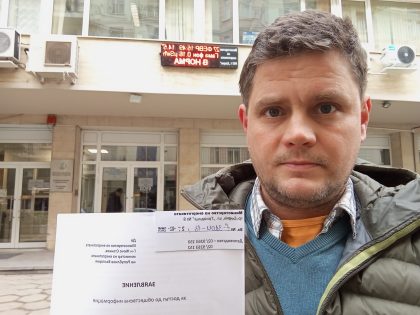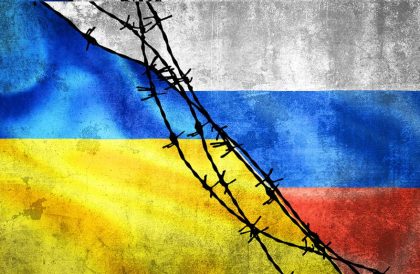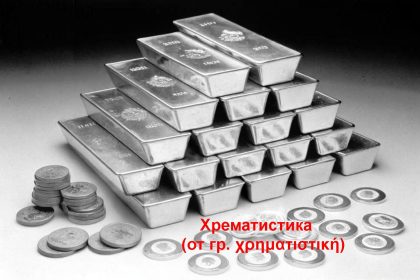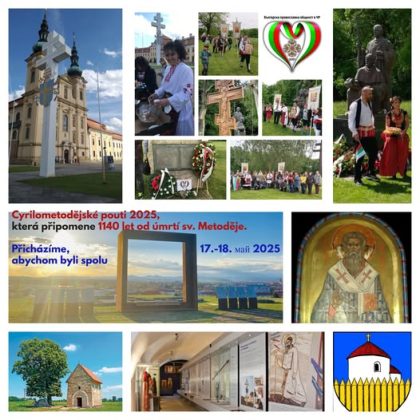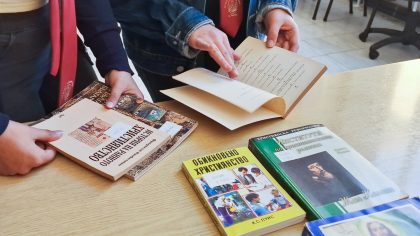ATTN ADMIRAL EFTIMIOS MITROPULOS
GENERAL SECRETARY OF THE INTERNATIONAL
MARITIME ORGANIZATION (IMO)
LONDON
PROPOSAL
About establishing an annual International Maritime Award
on the occasion of the 100th anniversary of
Nikola Yonkov Vaptsarov’s birthday (7.12.1909 – 23.7.1942)
patron of the Naval Academy, Varna
On the 7th of December, 2009, we will celebrate the 100th anniversary of the birth of the patron of the Naval Academy, Varna, Bulgaria – the poet – Nikola Yonkov Vaptsarov, called the “Mariner” by his classmates, teachers and commanders.
The United Nations Educational, Scientific and Cultural Organization (UNESCO) announced 2009 as the Year of Nikola Yonkov Vaptsarov.
Nikola Yonkov Vaptsarov was born on the 7th of December, 1909 in the town of Bansko. In 1926 he entered the oldest technical school in Bulgaria – the Machine School for the Navy, founded in 1881 – motivated by his love of the technical subjects and the sea, and complying with the will of his father, Yonko Vaptsarov.
For 6 years – until 1932, Nikola Vaptsarov had been learning the theoretic basis of the seamanship and had been mastering the ships machines and systems during the sea practice on naval and merchant ships.
Due to his natural poetical talent and his great love of literature, inherited from his mother Elena Vaptsarova, Nikola Vaptsarov quickly gained the love of his classmates, commanders and teachers, who supported the development of his poetical gift.
Nikola Vaptsarov fell in love with the sea and the machines, and he dedicated his first literary works to them – poems, essays, travel notes and stories. In recognition of his talent as a marine poet, his classmates started affectionately calling him The Mariner, which best suited his charming seaman’s character and the gift of this eminent talented young person.
Nikola Vaptsarov’s literary works are not only a merit of the world poetry about the sea and the seaman’s life. Nikola Vaptsarov brought something new to the world literature – he expressed the bond of the human soul to the sea and the machines!
As a person and a poet, Nikola Vaptsarov proved to be remarkable for his bravery and spirit, he struggled against the social injustice, and he fought with words and deed for the freedom of his country and his nation. Like many Bulgarian and world poets and writers, fighters for freedom and independence, he was sentenced by the authorities for his advanced ideas. He was shot on the 23rd of July, 1942 at the garrison military firing ground, Sofia.
Ten years later, Nikola Yonkov Vaptsarov was given the highest national and international acknowledgement! In 1952 The World Peace Council awarded him The International Peace Prize, which was handed to his mother in 1953 at a ceremony of many thousands, attended by poets and writers from dozens of countries.
Nikola Yonkov Vaptsarov’s publications have been translated into over 80 languages and are read all over the world.
Training ships, cargo vessels, schools, community centres and theatres have been named after Nikola Vaptsarov. Dozens of memorials have been erected in his honour and streets and squares have been named after his name.
In honour of the great Mariner-poet Nikola Vaptsarov, a peak in Antarctica was named after his name – Vaptsarov Peak (410m, coordinates 62°37′15″S, 59°54′25″W) – the peak is located in Tangra Mountains, on eastern Livingston Island in South Shetland Islands [Decree of the President of Republic of Bulgaria No 243/6th of July, 2004, State Gazette, issue 64/23rd of July, 2004].
Especially popular among the seamen are his works about the sea and the ships, about the seaman’s life: the essay “The Sea”, the essay “Memories about the mine-layers”, his impressions from the steamboat the “Burgas” (Alexandria, in the open sea, Mitilin (Lesbos) – Safo island, Marmaris island, Black Sea), the travel notes “A key of Suez” and “For people too sensitive – no admittance”, the poems “Fisherman’s life”, “In the ship dormitory”, “Thirst”, “March of the 26th alumni of the Machine School”, “Seamen” etc. We can estimate as a bright and exceptionally courageous literary work his speech, held on his graduation from the Machine School in 1932.
Nikola Vaptsarov’s nautical technical education and achievements in literature made him an innovator in the world poetry; he succeeded in grasping the rhythm of the new days, of the machines, of the technical progress. Vaptsarov became a herald of new romanticism – related to the achievements in the development of machinery and the advance of technologies.
The combination of indisputable poetic talent, deep literary knowledge and elite technical education obtained at the Machine School in the first half of the 20 th century, are that synergetic mix which allowed Vaptsarov to grasp the strength and the future of the machines, to spiritualize the machines and to relate the human spirit with the machine spirit, and to perceive the new stage in the development of the human society!
Nikola Vaptsarov’s literary work marked a new height in the world poetry and a new loop in the spiral of the knowledge!
In 2009, the whole progressive humanity celebrates in exciting ways the 100th anniversary of Nikola Yonkov Vaptsarov’s birthday. The year also marks a series of remarkable events in the water transport and the maritime education all over the world, which testify the new way of thinking and the new vision about the safety in shipping:
First: From 19th until the 21st of September, 2009 in Admiral Makarov State Maritime Academy, St. Petersburg, was held The 10th jubilee assembly of the International Association of Maritime Universities (IAMU).
The assembly sets noteworthy aims – to develop and maintain high standards in the maritime education, to provide the shipping industry with trained specialists of internationally qualification and to contribute to safety in shipping. During the assembly an International Forum, Round-table, was held for the representatives of the maritime administrations and the shipping industry. Its topic was “The maritime personnel: quality, quantity and career development. Creating a united educational space for training seamen as an answer to the globalization processes of the 20th century”.
The 10th jubilee assembly will contribute to the successful accomplishment of the main IAMU tasks:
– Creating and maintaining high standards for the maritime education in the world;
– Solving problems of the cadets and students’ practical training at the training, merchant and naval ships;
– Providing the world shipping industry with trained specialists of internationally qualification;
– Contributing to safe shipping from ecological, technical and humanitarian point of view.
Second: In conformity with its main aims and priorities IMO developed new conception about the safety in shipping, based on new understanding of the safety at sea. This substantially new outlook has a number of aspects: political, geographical, geopolitical, scientific, technical and technological, social, psychological, as well as moral, spiritual, economical, legal, personnel aspects.
The new conception about safety at sea is based on substantially new principles:
– Deep maritime knowledge;
– Good maritime practice;
– Maintaining the ship clean and in good working order;
– Accuracy and high professionalism;
– Good communication;
– Psycho-physical endurance of the crew.
The new conception in safety at sea was discussed in particular in the year 2000 during the 3rd International seminar from the series of seminars on “Substandard shipping: problems and ways of solving them through cooperation”.
The basic idea of this conception lies in the understanding that all accidents ultimately could be overcome!
Overcoming the accidents through implementing knowledge of safety relies on awareness and knowledge of survival, i.e. carrying out actions about preservation the human life at sea and limiting the damages from the accidents, as well as managing the risk and crisis, which underlies the accident-free work on board.
The 12th International Seminar, organized by the Russian Maritime Register of Shipping with topic: “Quality shipping: 21st century standards. Safety and Marine Environment Protection – Prospects We Face”, which took place in St. Petersburg on 21st – 22nd of October 2009 was dedicated to fulfillment of these aims.
Third: On the 11th of March, 2009, The European Parliament adopted the “Erika III” package, aiming at regulating the navigation in European waters, which consists of 8 regulations and directives. They are based on the fact, that the international and national shipping experiences a deficiency of trained maritime specialists, which is connected with the negative tendencies in the global and national economies.
The main strategic aim of the package is to improve safety of navigating in European waters and prevent disasters such as the Erika and Prestige shipwrecks. Adopting this package is a huge victory of The European Parliament related to safety of the world shipping.
These three remarkable events were preceded by the adoption of two fundamental documents by The European Union about increasing the role of maritime safety:
– On the 10th of October, 2007 The European Commission adopted The Blue Book – a document presenting An Integrated Maritime Policy for the European Union and accompanied by a detailed Action Plan. On the 14th of December, 2007 The European Union approved The Integrated Maritime Policy and The Action Plan;
– On the 7th of June, 2006, The Commission of the European Communities adopted The Green Paper “Towards the future Maritime Policy for the Union: The European vision for the oceans and seas”.
The aim of these strategic documents is to:
– Increase the competitive power of the maritime industry;
– Provide top knowledge in science and technology;
– Develop the European maritime abilities and broaden the chances of maritime employment;
– Increase the role of the human factor in the shipping.
The listed remarkable events and the new challenges in the shipping focus on the human factor in seafaring.
21st century requires a new vision of training maritime management personnel with higher education. Beside the traditional reliance on mindfulness, consciousness, discipline, responsibility and intelligence of the maritime specialists, the attention is also drawn towards developing a new set of personal values, new spirituality, high emotional intelligence, social competency and management knowledge of the maritime personnel.
Literature, poetry, music and art will also play a positive role in solving this challenging task for the maritime education of the 21st century.
The poetry of the marine poet Nikola Yonkov Vaptsarov will contribute to developing new spirituality and new professional knowledge of the seamen from all countries.
Nikola Vaptsarov managed to relate the sea and the machines to the human soul in an artistic way and give machines spiritual essence. This fact is particularly important to stress on, because the scientific, technical and artistic intellectuals have been considering the Human-Machine problem too narrow-minded, and failed to see it as a social problem, as a relationship between Human and Human, consequently as a Spiritual problem!
The Sea requires spiritual powers! Developing new knowledge in safety is possible only if developing a new set of personal values in the seamen and the ship crews!
The complex world of the seamen, pilots and cosmonauts persistently requires involving not only the engineers, constructors, designers, technologists, doctors and psychologists, but the writers, poets, play-writers, painters, artists, and composers as well.
The massive scientific, technological and psychological intensity, accumulated in the 20th century, gave a new stimulus to the human civilisation development at the beginning of the 21st century, which started with elaborating new, more complex moral and psychological problems for the seamen, pilots and cosmonauts.
In the first decade of the 21st century science reached the psychological bases of the spirituality and the knowledge in safety of the Flying Man (Home Volans), the Cosmic Man (Homo cosmicus, Homo Cosmodromo), the Man sea-farer (Seaman), the Man amphibian (Homo aquaticus), the Man under-water – aquanaut (Merman).
Nikola Vaptsarov is among the first poets in the world, who glorified and spiritualised the machines. With his literary work in the first half of 20th century he connected spiritually the humans, the sea and the machines, he gave the machine a Soul. Thus Vaptsarov, using artistic methods, got more than a half century ahead of that, which the modern explorers of the 21st century developed using scientific methods – The theory of the spirituality of the professionals with dangerous professions (pilots, seamen, cosmonauts) and revealed the nature of the Soul of the pilot, seaman and the cosmonaut, discovered the substance of the emotional and spiritual intelligence.
This is a unique contribution of Nikola Vaptsarov to the world literature, which ought to be fully evaluated, popularized and implemented in the educative activities in the maritime universities!
Your browser may not support display of this image.
Considering all these circumstances, remarkable events, motives and arguments, it is expedient The International Maritime Organization of the United Nations Organization to establish an annual individual and team Vaptsarov Maritime Prize, which is to be granted to lecturers from the maritime universities for great achievement in training the maritime commanders with higher education – the world leaders of the seas and oceans in 21st century!
The Vaptsarov Maritime Prize is to consist of a diploma, a medal (pendant, statue) and a financial premium.
While evaluating the work of the nominated candidates from the maritime universities, stress should be laid on their contribution to forming the spirituality and developing the personal values of the maritime specialists and their spiritual relation with the sea and the machines!
The status of the Vaptsarov Maritime Prize, the regulation about awarding the prize, choosing members for the jury, as well as the amount of the financial premium should be specified additionally.

